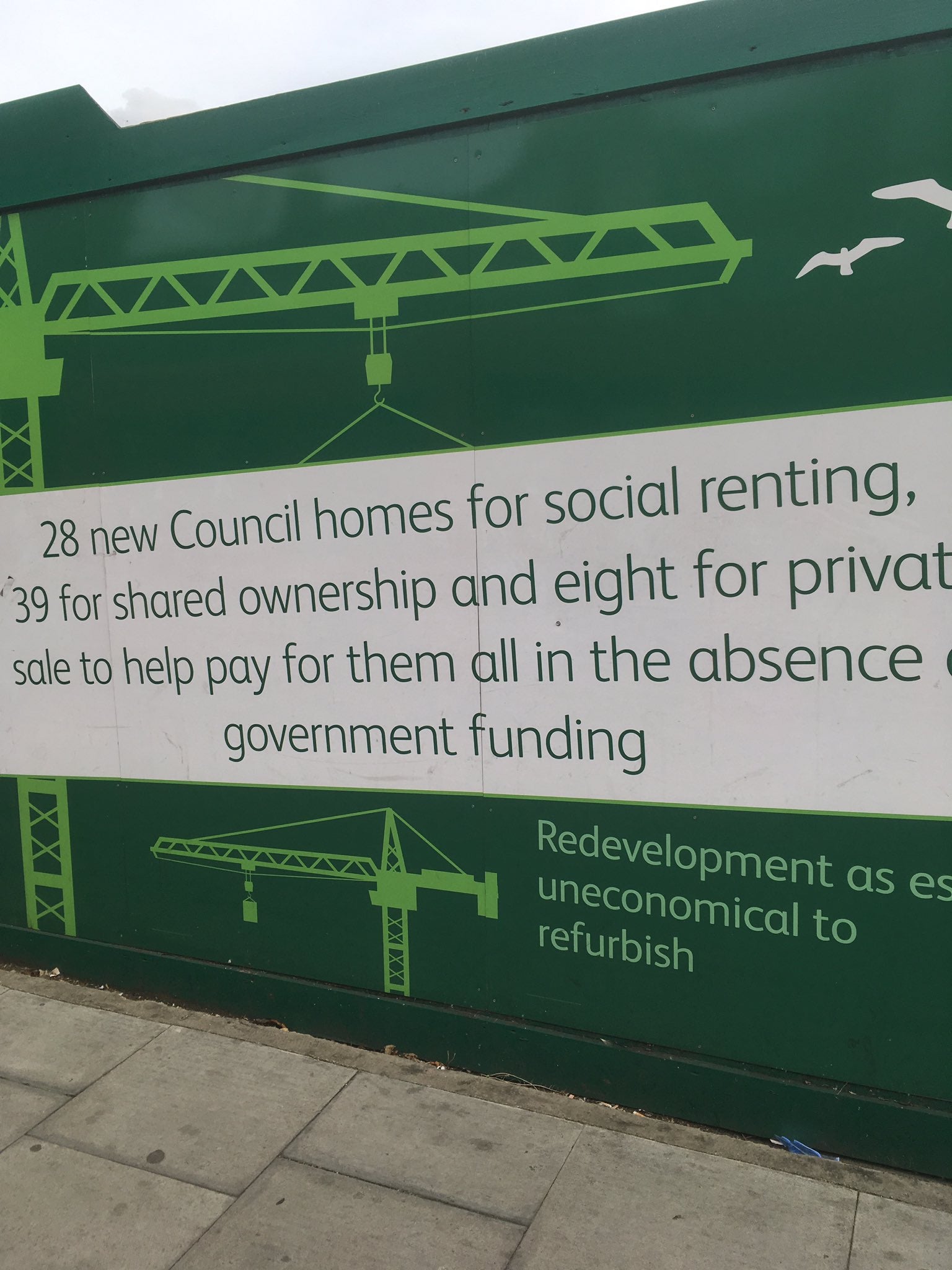I make no apologies for my council's controversial new housing strategy after we were given zero funds from the Government
Being close to central London means we can bring in significant cash by using our land and property better. Instead of selling them off to speculators, we’ve rented our old buildings to workspace providers, and brought Amazon’s UK HQ to council land in Shoreditch. It's not a perfect strategy and many complain of gentrification, but it's the only thing we can do now

People often ask me why as a Labour council leader, I can’t just build thousands of new council houses to solve Hackney’s housing crisis and provide a new home to the 13,000 families on our waiting list.
I wish I could do that. I got in to politics because I wanted to do something to improve the lives of struggling people – I certainly didn’t ever imagine that as Mayor of Hackney I’d be overseeing the building of homes for sale on the open market. But the truth is we have no choice, because the Government gives us absolutely no money to build social housing.
Just consider that again. Despite the biggest housing crisis in generations, with more than 120,000 children across England living in hotel rooms, hostels and bed and breakfasts, ministers provide zero funding to local authorities to build genuinely affordable council homes.
We could begrudgingly accept that and carry on fulfilling our other duties – providing schools, care for older people and vulnerable children, maintaining parks and bin collections – all of which are also under huge pressures. But that’s not what our residents expect.
It might not be popular with everyone, but we think that building private housing in order to fund social and genuinely affordable housing in our borough is key to us doing our best to help the local people facing crippling housing costs. It’s the only funding option we have left.
This strategy will allow us to build around 4,000 homes to rent and buy over the next few years – with more than half of our estate regeneration programme for social rent and shared ownership, and a new programme aiming to push that figure to an even higher 70 per cent of homes.
Last week a picture of a sign at one of our developments, explaining why we were building homes for outright sale, went viral on Twitter. The sign, which is positioned in front of a construction site, reads: “28 new council homes for social renting, 39 for shared ownership and eight for private sale to help pay for them all in the absence of Government funding.”
It caused a mixed reaction – some people applauded what they called a “no nonsense” message, explaining exactly why we’re doing what we’re doing, but some questioned whether we were fanning the flames of gentrification.

A key part of our decision to build to sell is that every council tenant in all of our estate regeneration schemes is guaranteed the right to return to a better, more modern home. But if we’re to get any house-building done, we’ll need to sell homes to give us the cash to build more.
The reality is that the Government has tied the hands of councils up and down this country, making it impossible to meet housing demand and subjecting us to nearly a decade of austerity – cutting some of my council’s service budgets in half.
This is the longest, most sustained attack on local government finances since Hackney Council was established in the 1960s. Hackney now has £152m per year less to work with than it did in 2010. At the same time, increased demand for our services means we’re spending £42m more to provide them.
But schools, leisure centres, parks, new council housing, streets and pavements, our town centres – these all still need investment. We have to find new ways to raise that money, such as building and selling private housing, and we make sure that the profits from new homes in Hackney go into public infrastructure rather than the pockets of developers.
This approach isn’t limited to housing. We’re having to think completely differently to the councils of 10 or 20 years ago, and raising money – not just through council tax and Government funding, but through other innovative means – is the new norm.
Being close to central London means we can bring in significant cash by using our land and property better. Instead of selling them off to speculators, we’ve rented our old buildings to workspace providers, and brought Amazon’s UK HQ to council land in Shoreditch – bringing in hundreds of thousands of pounds in long-term income and creating hundreds of jobs.
Of course, the flipside of Hackney’s high land values is the highest jump in house prices in the country, crippling private renters and leading to a significant rise in homelessness.
Other councils in England, where deprivation is high but land values are low, don’t have the opportunities Hackney has had. The bottom line is that local government has spent seven years cutting costs, commercialising and making its land work harder – but these options are running out. If austerity continues until 2022, some councils will fail and that will ultimately have devastating impact on the most vulnerable in our society.
The Government must change tack if it wants to see public services continue to operate at even a basic level. It could start by getting rid of the ridiculous rules that don’t allow councils to borrow money to build new homes and leaves a broken market responsible for solving our housing crisis.
Until then, we’ll keep on building homes for sale to those who can afford them, to ensure we can provide homes for those who need them most.
Philip Glanville is the Mayor of Hackney
Join our commenting forum
Join thought-provoking conversations, follow other Independent readers and see their replies
Comments
Bookmark popover
Removed from bookmarks